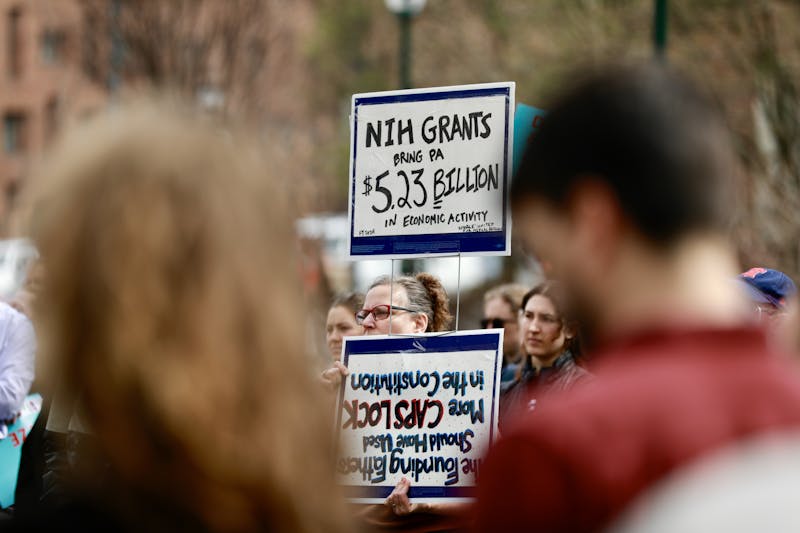
The Pennsylvania Convention Center has been making local headlines since its grand opening in 1993, and the majority of it hasn't been good news. The latest episode in the saga involves the day-to-day court battle of this week. According to Mayor John Street's Director of Communications Barbara Grant, the city successfully secured a stay of execution yesterday concerning a Tuesday night ruling which had been placed on hold due to the Wednesday appeal by the state to the Pennsylvania Supreme Court. The original ruling, which will stand until the Supreme Court makes a final decision, effectively wrests control of the center from the foster care of the state -- where it has resided for the past two months -- and returns it to the parental jurisdiction of the city. The decision effectively nullified the membership of several board members elected after the state takeover. City and state officials have debated whether Philadelphia can put the center in order. The general consensus is that it's a toss-up, but the story is long and complicated, and the genre is travesty, pure and simple. The convention center, located at 12th and Market streets, has been given many names, none of them flattering: it is "a mess" according to City Councilman Jim Kenney, "a political football" according to one convention center official. Replete with labor and management problems, it has alienated businesses in droves due to general inefficiency and high costs, complicated by the surly attitudes of union workers. Most of the center's troubles can be traced to the six unions. Each has "historical claims on portions of the work," according to David Crawford, president of Econsult Corporation, the company hired to assess the labor situation. According to the report, the center's union dilemma is exemplified by three simple words: "pipe and drape." Normally, these materials are used to set up booths at conventions using "pre-hung drapes," Crawford said. "They set up the standards, throw on the pre-hung drape and it's done." But not in Philadelphia. "One union, the laborers, come in and install the standard and add the horizontal pipe," Crawford said. "Then the carpenters remove the horizontal pipe, put on the drape and replace it.... The pipe and drape rule has become the poster child for the problems at the Pennsylvania center." According to State House Majority Leader John Perzel spokesperson Steve Miskin, it took union workers two hours, at a price of $135,000, to set up nets for a girls' volleyball tournament that would take only an hour to be done by "some 14-year-old girls at a price of $50,000." It's stories like this that make the center sound like a bad joke -- how many unions does it take to screw in a light bulb at the center -- but there's much more than a punchline at stake. Trouble at the center places Philadelphia's tourist-based economy in jeopardy, putting 57,000 jobs at risk. Since last summer, Street has been trying to reach an agreement with the unions to help guarantee customer satisfaction but without success. Meanwhile, Street put forth a $464 million proposal to expand the center to effectively compete with recently renovated complexes in other cities. But the state legislature in Harrisburg, which would provide half the money to fund expansion, refused to make a deal until Street tamed the unions. Having denied the money for expansion after Street failed to reach the September settlement deadline with the unions, the Republican-controlled legislature took matters into its own hands. In a lame-duck session early on Nov. 28, the state legislature passed a measure proposed by Perzel, allowing the state to assume authority over the center with a new management board. Grant called the measure, Senate Bill 110, "a bad bill passed in a bad way... stealth legislation." Outraged, Street brought suit. He was angered further when one of his strongest opponents on the City Council, Michael Nutter, was appointed as the board's new chairman. Nutter, a 1979 Wharton graduate, has no hospitality industry background, and it remains unclear whether his appointment and that of new chairman Al Mezzaroba are in accordance with the guidelines laid out by the state legislators. "Though the legislature is getting blamed for this, I think this is the mayor's fault for not building relationships with Harrisburg," Kenney said, expressing hope that the affair would not become "a 20-year war to see whose ego is bigger."
The Daily Pennsylvanian is an independent, student-run newspaper. Please consider making a donation to support the coverage that shapes the University. Your generosity ensures a future of strong journalism at Penn.
DonatePlease note All comments are eligible for publication in The Daily Pennsylvanian.







